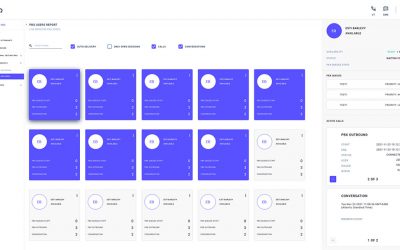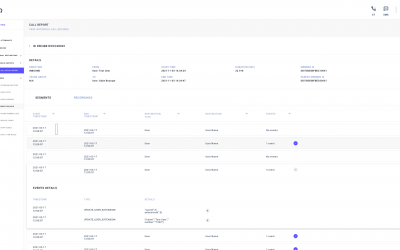Customer service is the backbone of any successful business, but the well-being of employees is just as crucial. Unfortunately, abuse from frustrated or aggressive customers is a common challenge in the industry. To maintain a healthy work environment, it’s essential to protect call center agents from customer abuse. When agents feel safe and supported, they perform better, stay engaged, and provide excellent customer service.
In this blog post, we’ll explore key strategies to safeguard agents while ensuring a professional and positive customer experience.
1. Recognizing the Impact of Customer Abuse
Customer abuse in call centers can take many forms, including yelling, insults, discrimination, and even threats. As a result, agents who face repeated hostility often experience high stress, anxiety, and job dissatisfaction. Over time, this can lead to burnout, increased absenteeism, and high turnover rates, all of which negatively affect business efficiency. Moreover, when employees feel unsupported, their ability to provide excellent customer service declines. Therefore, recognizing these issues is the first step toward creating a safer and more supportive workplace.
2. Implementing Clear Policies and Training
To effectively protect call center agents, organizations must establish clear policies and provide proper training. Without these measures, agents may feel unprepared when dealing with difficult situations. To prevent this, call centers should:
- Define acceptable and unacceptable behavior – Set boundaries and ensure both agents and customers are aware of them.
- Train agents in de-escalation techniques – Provide tools and scripts to help agents manage difficult conversations.
- Implement an escalation process – Give agents the authority to escalate abusive interactions to a supervisor when necessary.
In addition, regular training sessions can empower agents to handle tough situations with confidence while maintaining professionalism. By reinforcing these best practices, businesses can create a more supportive and effective work environment.
3. Leveraging Technology to Protect Agents
Technology plays a critical role in reducing customer abuse and supporting agents in real time. To enhance protection, call centers should consider implementing:
- AI-powered sentiment analysis – This can detect rising tension in conversations and alert supervisors before situations escalate.
- Call monitoring and recording – These tools provide evidence of abusive behavior and ensure compliance with company policies.
- Call routing strategies – Directing difficult customers to experienced agents or supervisors can help prevent conflicts from escalating.
Furthermore, real-time monitoring allows supervisors to step in when needed, ensuring that agents are not left to handle aggressive callers alone. By integrating smart technology, businesses can protect call center agents and provide them with the support they need to manage challenging interactions more effectively.
4. Encouraging Supervisor and Peer Support
A strong support system is crucial for maintaining agent morale. When agents feel isolated, dealing with abusive customers becomes even more stressful. To create a more supportive environment, call centers should:
- Encourage team leaders to check in with agents after difficult calls.
- Create a buddy system for peer support and stress relief.
- Offer access to mental health resources, such as counseling or wellness programs.
Additionally, fostering open communication between employees and management helps agents feel heard and valued. When agents know they can report incidents without fear of retaliation, they are more likely to seek help and remain engaged in their roles.
5. Giving Agents the Right to Disconnect
No agent should be forced to endure abusive behavior. Therefore, organizations must empower their teams with the ability to:
- Politely warn customers that abusive language will not be tolerated.
- End calls when customers cross the line, following company guidelines.
- Document incidents to prevent repeat offenders from continuing their behavior.
By setting these boundaries, companies demonstrate their commitment to employee well-being. As a result, agents feel respected and valued in their roles, leading to improved job satisfaction and productivity.
6. Promoting a Culture of Respect and Well-Being
Ultimately, a call center’s culture plays a significant role in how agents are treated—both internally and externally. Companies that prioritize employee well-being create a more positive and productive workplace. To promote a culture of respect, businesses should:
- Recognize and reward employees for their hard work.
- Encourage open communication between management and agents.
- Provide regular feedback and opportunities for professional growth.
Moreover, fostering a respectful work culture benefits not only employees but also customers. When agents feel appreciated, they are more likely to remain committed to their roles and provide excellent customer service.
Conclusion: Protect Call Center Agents from Customer Abuse
To ensure a productive and positive work environment, businesses must protect call center agents from customer abuse. By implementing strong policies, leveraging technology, fostering a supportive work environment, and giving agents the right to disconnect, organizations can create a healthier and more efficient call center. Furthermore, a safe and respected workforce leads to better customer interactions, improved job satisfaction, and overall company success.
Contact Us
Looking to enhance agent safety and create a better call center environment? Our solutions can help you implement the right tools and strategies. Contact us today to learn how we can support your business and protect your team!



